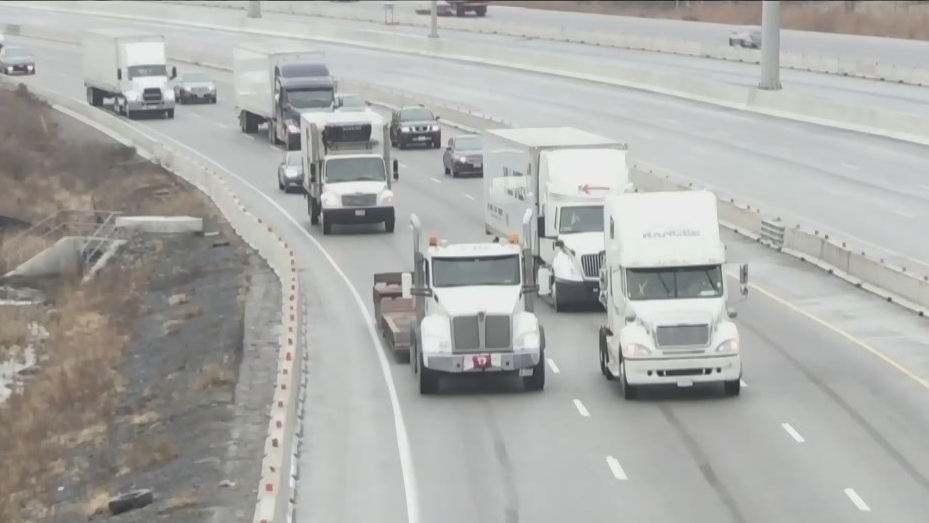School bus companies do this too. They only pay for driving the route, not the time at the yard pre-tripping and getting ready, not the drive to the route, and not the drive back from the route. Just the route.
It’s fucking bullshit.
From what I understand, flight attendants as well. They don’t get paid until the door closes and stop getting paid when it opens.
I wonder if Alaska made an attempt to claim the attendants on flight 1282 stopped working once the plug door blew and were therefore ineligible for pay lmao
On the one hand, that seems so stupid to even conceive of that it’s clearly a joke. On the other hand, you know some penny pincher MBA in Alaska’s corporate office thought about it seriously for at least a moment or two.
Coincidentally, I just watched the John Oliver segment on Boeing recently, and after that, I honestly would not be surprised.
At Alaska Airlines? There was absolutely a guy thinking about that, and it wouldn’t surprise me if it was the CEO. The current CEO was the CFO who failed to properly fund maintenance costs and killed over a hundred passengers.
As someone who’s done delivery trucking (fuel in a pickup to remote areas affected by CA wildfires) how the FUCK is that legal?
I had (as does everyone in CA) to fill out a manifest that included what I had on my vehicle, all delivery and loading stops, how much was delivered and / or loaded at those stops, track down to within 5m of error when I was on-duty (pre-trip, loading at rack, dropping fuel, basically anything where I’m not IN the truck), driving, and break time.
Not filling that out was a write-up, not having it on you while driving is a ticket (for you personally), and they HAVE to pay you for the pre-trip as it’s work being done.
Basically any job that pays by the mile isn’t paying you for your pre-trip
The company said that the times between engine start and engine stop constituted a driver’s work hours, but that the men had logged on their timesheets that they started working before turning on their trucks and kept working after they turned them off. Thus, they have committed time theft.
“I disagree,” Carmody wrote in each of the cases. “A driver’s shift does not start when the driver starts the engine, and it does not finish when the driver turns off the engine. The driver must report to the yard, receive and review their delivery assignments, plan their route and conduct a pre-trip inspection.”
The men also all recently left the company after their complaints to the province of not being paid overtime went nowhere. They say this lawsuit is retaliation for demanding fair pay. The court couldn’t decide on whether or not that was true, but said it wouldn’t change the ruling either way.
The employer thinks their employees are trucks, lol.
Sounds like an OHSA violation. Vehicles should be inspected daily before operation. Either they’re not paying for the required inspection or they’re telling the staff not to do that inspection. Either way the company is liable.
I’d also consider that things like locking/securing the vehicle counts as work too. If the shift ends when the engine stops it’s getting left open until the next shift.
Yeah pre-trip inspections are required in B.C. and Ontario before you move anywhere in a commercial vehicle, so it definitely is a part of the job that needs to be paid for. Work procedures that neglect that should be the companies fault, even if not doing them would be the driver’s fault.
I still hold that not paying employees to commute to an office (and transportation in general) is wage theft.
I get that this disadvantages employees in more remote locations because their employment is more expensive. But at the same time, remote employees are still disadvantaged by spending more time and money out of pocket for the commute.
It’s a very simple principle: If your job needs you to do something, like be in the office, then the employer needs to pay for ALL the expenses related to it. We (workers) need to bargain for these rights collectively, either through unions, government regulation, or just coordinated effort.
The problem with that is people game it. They start a job a block away, once employed they move 100km away and expect money for commute time. Even parents have done it in school districts so they don’t have to drive their kids in the morning, start the year in district, move out of district right after and district was still bus responsible for students, so they had to send privates busses to pickup a handful of kids.
People are aasholes.
The abuse cuts both ways. People are hired for remote jobs, then RTO mandates are instituted, and suddenly this shafts employees that have made arrangements based on the remote work conditions.
I suppose there’s a pretty straightforward solution to all of this: have it all negotiated upfront as part of the hiring, including expected transportation costs.
I get that workers in remote locations benefit from lower cost of living. But what we should not do is prop up commercial leases because those owners can’t stomach the risk they signed up for by investing money in real estate. Telecommuting ultimately saves employer’s on expenses and is good for the planet and our well being…
Anyway I am getting side tracked with WFH. ALL requirements stemming from employment, including transportation cost and time, meals, dress, quarters should be billed to the employer. Anything less is an unfair employment agreement, where workers have collectively agreed to give over time and money to the companies.
Meals shouldn’t be included since you can eat breakfast at home, pack a lunch, and be home for dinner. But if overtime creeps into dinner then it should be paid. there are a few companies that give dinner allowance if you work more than 8 hours. if your employer requires you to stay overnight for a job there ia already a government allowance they should be transferring. It is about $52 per day in Canada. Mileage outside of your to/from work is per km, lodging should be paid etc.
Yep, I think what we’re really seeing is some of these things should be formalized in the employment contract, and the employer should be held to that within reason. Sounds like the linked article is pretty clear cut, the company claims time starts/ends when the vehicle’s engine starts, but there’s also clear regulation that employees should do an inspection before operating a vehicle, they may also have duties regarding reviewing shipping paperwork, signing in/out of a pick-up/drop off location, etc… This is similar to how many retail employees are pushed to clock in-out at the advertised hours of operation, while there’s obviously things that need to be done before/after actually being available for business.
For the rest, it could be as simple as considering work location a substantial part of the job, if a person accepts a remote position and the company decides to change it to an in-person position that should qualify as constructive dismissal, the employee should have the choice of taking a severance and moving on, or re-negotiating things like salary before accepting the change. Similar arguments for thing like working hours, if a company changes the location or wants a staff member to work at a different location, etc.
Unionization can help sometimes too. One place I worked had in the CBA that if an employee stayed more than 2 hours past the scheduled shift the employer would provide a meal. Some trade unions have language regarding covering mileage and paid travel time when the worksite is a particular distance from some specific location, as well as how far that distance can be before the employer also has to cover food and lodging.
Yes, agreed. The employer in the article is just shitty. As soon as you enter yard and start tasks should be clock start. Even as an apprentice in a tool shop decades ago they expected bell to ring, then you clean up. That was just fundamentally wrong, so I’d start tapering off the work and cleaning at 15 minutes to the bell. They could squawk all they liked, I’m not standing in a tool return lineup AFTER my shift is over.
Better agreements are needed.
Even for Engineering jobs, since those “Professional” jobs aren’t covered by regular labour laws, in some situations you have young Engineers not reimbursed for Holidays, and no Overtime pay so they end up working for below minimum wage.
Thankfully the company I’m with now has WFH and my home office is considered my workplace, so travel anywhere is mileage, company shirts for onsite customer visits and jackets provided each year. Any extra hours we bank for the next week or can submit an OT form monthly. If I need a car for an onsite visit I can expense a rental. Some good employers exist.
Saskatchewan labour law is for meal breaks every 5 hours. Everything after the first meal break is at company expense (at least at every one of the couple of dozen employers I’ve had since 1974).
Nice
Employers requiring a doctor’s note for taking a sick day should be made criminal in itself.
Owners of company like could find sugar in their gas tanks or at least how I heard it was handled when labour had any balls.




